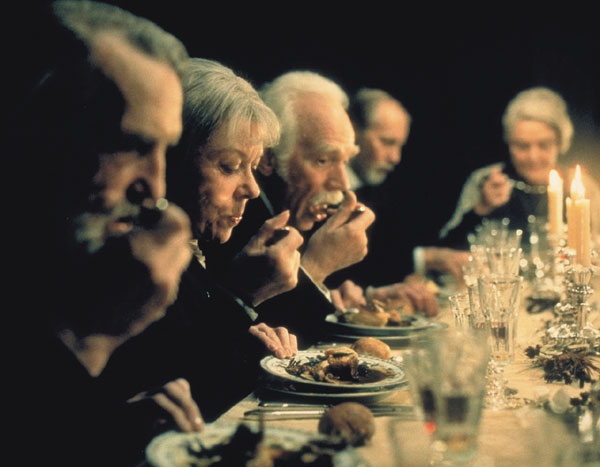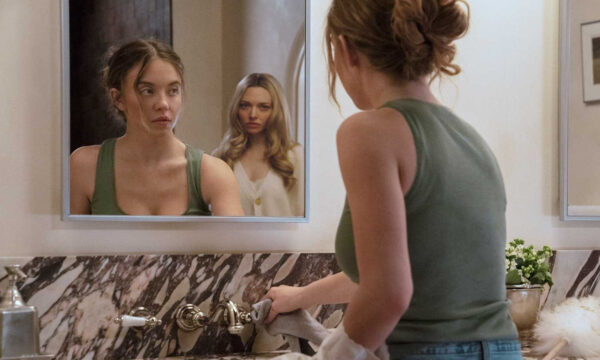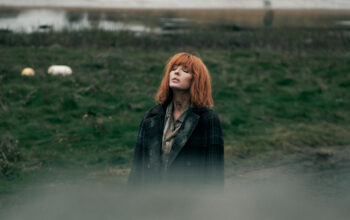Babette’s Feast

Babette’s Feast is many things: a fairy tale, a delicate and at times slightly surreal fable, a tour-de-force delight for foodies, and a melancholic contemplation on talent denied and lifelong regrets.
That may all sound rather weighty, but Gabriel Axel’s much loved 1987 adaptation of Karen Blixen’s book is a deftly handled, elegant and gracious depiction of the source material. It is a film that despite its modest, precise pacing, contemplative characters and downplayed cinematographic colour palette, teams with subtle dynamics and powerful themes.
The story, set in 1877, revolves around Babette (played to perfection by Stéphane Audran), a striking, head strong and enigmatic Parisian maid taken in by two sisters, Martine (Birgitte Federspiel) and Filippa (Bodil Kjer); the heads of a religious sect set-up by their now deceased father, living a simple life that abandons earthly pleasures along the Jutland coast of Denmark.
After smoking fish and silently helping the sisters for 14 years, Babette stuns the residents of the town by revealing she is a culinary genius and throws an enormous and unparalleled feast for what would be the vicar’s 100th birthday.
It’s a film that operates on two levels, all wrapped up in a spellbinding fairy tale-like charm. On one hand, it’s about the waste of talent, whether artists are right to keep their gifts for themselves, whether they should be given away freely or whether they should be sold to the crowds. On another level, it’s a film about what it takes to feed the spirit of a person, not necessarily in a religious sense, but what hopes, fears, dreams and loves keep the soul alive over the years.
Both Babette and Filippa possess extraordinary talents, and yet they do not indulge them. Babette’s talents come from a time prior to her escape from Paris. Filippa, only a girl when we meet her, is discovered singing in church by famous opera singer Achille (Jean Philippe Lafont) during a visit he is undertaking to Jutland. Convinced he has discovered a new prima donna he begins to give her singing lessons. Despite her ability to transcend her meagre surroundings, Filippa grows afraid of the emotional music he is teaching her and requests the lessons stop. Achille leaves heartbroken, but never forgets about her.
As a young lady, Martina becomes the focus of infatuation for a young handsome general, who despite his best intentions to win her, ultimately realises the futility of it. Even though she evidently feels for him and he indeed could be an escape from her simple life, this is never even a considered option for her. Choice in the sisters lives never come in to play, they are so single-minded that the idea of anything beyond their father’s sect simply does not exist, regardless of what feelings are stirring within them.
Ultimately Babette’s masterpiece dinner does the impossible and begins to free up the puritans of the village – if not in enrapt applause, then certainly in a more loving bond with each other.
A surprise best foreign film Oscar winner back in 1987, it is contemplative at times, joyous at others and an achingly sad portrayal of the link between art and the artist.
Jonathan Day
Babette’s Feast is released in select cinemas on 14th December 2012.
Watch the trailer for Babette’s Feast here:























Facebook
Twitter
Instagram
YouTube
RSS